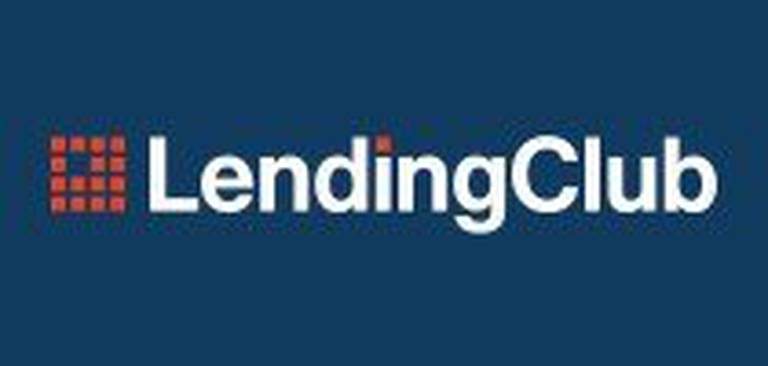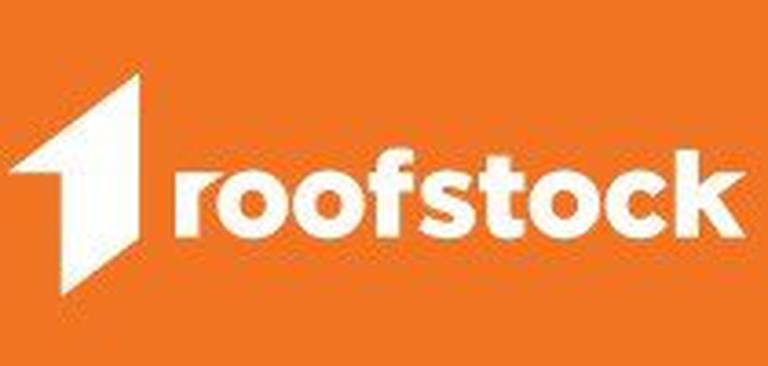Are you nearing retirement age or even retired already and looking for ways to invest your funds at low risk but with a chance to let your money continue to earn for you?
As you know, market volatility can directly affect investment practices. Aggressive investors with plenty of funds take advantage of record low prices, while those with limited cash turn to more conservative options to weather the storm.
As a prudent senior, you know that safe, low-risk investments may not provide opportunities for impressive windfalls. However, wise investments can help safeguard a nest egg and provide a steady, if smaller, return on investment. Diversification is the key to building a well-performing portfolio.
Your investment goals will depend on several factors: your age, your financial status, and your risk tolerance. Short-term investment goals are more prone to fluctuation. Long-term investments may grow more slowly but are more dependable. Let’s look at several options:
Account-Based Investments
You can invest your money in an interest-bearing account. Although interest rates will be relatively low, the advantage of this option is that you’ll still be fluid, and your money is accessible when needed. Here are several types you might investigate.
Money Market Accounts
Money market accounts allow you to earn interest on your funds without tying them up indefinitely. The Federal Deposit Insurance Corporation (FDIC) guarantees $250,000 in deposits per institution.
Your bank or credit union may offer a money market account. Most brick-and-mortar banks have a high minimum deposit, averaging around $2,500. The annual percentage yield (APY) will be minimal, however, and you might even lose money during times of rapid inflation.
Online banks provide the highest APYs. CIT Bank offers a 0.55% APY as of April 2022 on money market accounts. The minimum deposit at CIT Bank is only $100 to open an account, with no account balance minimums or maintenance fees.
A regular bank account typically lets you have as many transactions as you want every month, while a money market account limits the number of transactions per month. You will not be able to withdraw often, but you can access your invested money in an emergency.
Why choose a money market account?
If you are planning short-term and want your money to be as safe as possible, a money market account can provide some level of security. If you can get an APY that stays ahead of inflation, your risks could be almost nil.
Online Savings Accounts
Online banks have cut their costs to the bone. With no overhead and limited staff, they can afford to offer a more competitive APY on online savings accounts. Your deposits are still FDIC-insured, just like accounts at brick and mortar banks.
Like money market accounts, you can do better with an online bank than with a traditional financial institution. Avoid minimum deposits, minimum balances, and monthly maintenance fees by comparing various accounts and institutions. Look further afield than your regular bank or credit union to find the highest APYs.
A high-yield savings account from an online bank can offer a competitive APY. American Express has a high-yield saving account with a 3.30% Annual Percentage Yield as of 12/22/22. This account has no minimum balance requirement to open and charges no monthly fees.
Why choose a high-yield savings account?
If you have zero tolerance for risk and don’t mind glacially slow gains, a high-yield savings account might be best for you. It’s an excellent place to store money for an emergency. Online accounts are easy to manage, and you can transfer funds quickly if needed.
Related: Best Bank Accounts for Senior Citizens
Cash Management Accounts
The main difference between a cash management account and a money market or high-yield savings account is the institution providing it. Banks and credit unions offer traditional banking accounts. Financial institutions, such as brokerages, offer cash management accounts.
Many online brokerages offer cash management accounts alongside investment accounts, and you can link the two. It’s easy to move money between your cash management account and an investing account as needed. You can also typically access some level of financial advice, potentially from a financial advisor or robo-advisor.
Wealthfront offers a sophisticated form of cash management. It only requires a $500 minimum investment and creates an investment portfolio for you. Their robo-advisor guides the process and manages your assets automatically.
Learn More: Wealthfront Cash Account Review
Why choose a cash management account?
Cash management accounts earn money through low-risk investing, and returns can fluctuate between 1% and 5%. The main advantage of this kind of account is that your money is easy to access if needed. Otherwise, the account is mostly touch-free.
Risk-Free Deposits
Another category of investing is through risk-free deposits. You can "loan" your money to a bank or the government for a set period. They will pay you interest, and at the end of the term, you get your investment back. The interest rates they pay you are low, but your money is almost certainly safe.
Certificates of deposit
Certificates of deposit, or CDs, were the gold standard for risk-free investing for decades. They offered a higher interest rate than savings accounts, money market accounts, or cash management accounts. Now, CD APYs are comparable to those of a high-yield savings account.
When you buy a CD, you're loaning the bank your money for a set amount of time, which allows it to make its investments. The interest rate is guaranteed, and your money is FDIC-insured. Online banks tend to have better APYs than traditional banks for CDs.
Why choose CDs?
If you are entirely risk-averse, CDs are a good option the return is low, but your money is safe. You don’t have to worry about the temptation to access your funds since most CDs have a penalty for early withdrawal. Although no-penalty CDs are available, the APY on these CDs will typically be even lower.
Treasury Securities
Treasury bills, notes, and bonds put you in a position to be a kind of lender to the government. When you buy Treasury securities, you earn interest on the "loan." If you hold the note until maturity, you receive your entire investment back.
A Treasury bill is extremely short-term since it matures in just one year. Treasury notes pay back in two to ten years, while Treasury bonds take 20 or 30 years to mature. Treasury securities have a reputation as the ultimate safe haven for funds.
Treasury securities typically have a low-interest rate, comparable to that of a money market account (or sometimes even lower). While they provide a safe place to keep your money, these securities may not keep pace with inflation. You will also lose interest if you don’t hold your securities until maturity.
Why choose treasury bills, notes, or bonds?
The U.S. Government backs all Treasury securities. They carry a fixed interest rate, so you have a guaranteed return in regular cash payouts. In volatile markets, many investors feel safer with a fixed interest rate and a limited investment term.
Fixed-Rate Investments
The third type of investment opportunity would be fixed-rate options for investment. Many financial advisors consider these to be safe, low-risk investments for seniors. You can choose from any of the following:
Corporate Bonds
Like governments, companies also issue bonds. Bonds from large, profitable companies typically have the least risk. Look for well-known, stable organizations with a history of dependable return on investment.
Remember that the market value of a corporate bond may fluctuate. If you decide to sell your bond, and the interest rate has dipped, you can lose money. “Junk bonds” may have a higher potential yield, but they are riskier because companies offering them may not be as stable.
Corporate bonds have returned an average of 3% to 4% over the past decade. They can be a better option than Treasury securities or basic money market accounts. Choose your bonds carefully for minimal risk.
Why choose corporate bonds?
Bonds are lower-risk than stocks because bondholders get paid first if a company goes bankrupt. Bonds also have a fixed interest rate. If you buy when the rates are high, you maintain your level of return even if rates subsequently fall.
Preferred Stocks
Preferred stocks are ownership shares of a company. These stocks offer a fixed return or dividend, usually paid out quarterly. Your dividend will always match promises made when you bought the stock, even if its market value diminishes.
The crucial thing to know about preferred stocks is that dividends are not guaranteed. In times of austerity, the company can choose to forego dividend payments. However, this is rare, and when it happens, it is a signal that the company is in deep trouble.
Why choose preferred stocks?
Returns on preferred stocks vary from company to company, but the yield can be 5% or higher. Their fixed rate can be preferable to a fluctuating common stock dividend. Look for a stable company with a history of never missing dividend payments.
Fluctuating Interest Investments
Another safe, low-risk investment category for seniors includes investments with a fluctuating interest rate. These are not no-risk investments in fact, they are higher risk than fixed-rate investments. However, diversification can keep these investments in the low-risk range for most investors. These include:
Dividend-Paying Common Stocks
Most investors consider dividend-paying stocks to be a safer investment than high-growth stocks. The cash dividends help to lower stock volatility. Common stocks have a fluctuating interest rate instead of preferred stocks, which have a fixed rate.
Like preferred stocks, dividend-paying common stocks carry the risk that a company will choose to forgo dividend payments. However, this happens rarely with stable stocks. Your financial advisor can help you identify low-risk common stocks.
Why choose dividend-paying common stocks?
Dividend payments are quarterly or even monthly, providing you with a cash income stream. They are also cheaper than preferred stocks. Common stocks may be more accessible to seniors with a smaller amount of money to invest.
What About Using a Financial Advisor?
Do you need a little help with your investment portfolio? Paladin Registry is a free service that connects you with vetted financial advisors. When you input your information and goals, the algorithm matches you to ethical experts in the registry.
Plenty of options are out there for safe, low-risk investments for seniors. If you need guidance, a financial advisor can help you maximize your gains and secure your future.
Mutual Funds
Mutual funds act as a single investment. However, they give you exposure to multiple assets. Think of a mutual fund as a bundle holding a diverse selection of stocks, bonds, and commodities.
Mutual funds have professional management. The mutual fund company pools money from its investors and invests those collective funds across various securities. This practice lowers risk for all investors and provides fully diversified portfolios.
You can choose to have your portfolio actively managed to achieve higher returns, but this will cost you some broker fees. Alternatively, you can opt for passively managed funds with few or low fees and accept a slightly lower return. The goal is to come out ahead, long-term, without exposing yourself to unnecessary risks or expenses.
Why choose mutual funds?
Mutual funds lower your risk by providing diversification. They can provide a steady yield over time. These types of funds are best suited for an investor who is looking for a long-term investment solution.
Doughroller’s Best Online Brokers
- Ally Invest: Best for new investors and those looking for a very easy website to navigate.
- TD Ameritrade: Ideal for more experienced traders looking for a rich set of tools and resources.
- E*TRADE: Offers trading platforms and tools for any investment style.
Individual Retirement Accounts
Individual retirement accounts, or IRAs, are a common option for seniors. You can open an IRA with an online broker, a robo-advisor, or a mutual fund company.
An IRA is like a regular account but has exclusive tax benefits for leaving your money alone long-term. Penalties typically exist for withdrawing from or cashing out an IRA before you reach a certain age.
You can add funds to your IRA by making deposits or rolling over funds from an employer-sponsored retirement plan. You can also use most types of investment vehicles inside your IRA.

M1 will let you set up an IRA with just a $500 investment and passively manage your account for you with no fees. You can use one of their expert portfolios or choose to customize it. Seniors can benefit from the hassle-free, hands-off investment experience.
Why choose an IRA?
You might already have an IRA or a 401K you can roll over into a new account. IRAs are incredibly safe and have multiple tax benefits. Best of all, you can choose how hands-on you want to be.
Peer-to-Peer Lending
Peer-to-peer lending, or P2P investment, allows you to invest small amounts of money in multiple loans. You might commit $25 to one loan and $100 to another. Common lending options include student loans, personal loans, loan consolidations, and small business loans.
Since you can spread your investment out across multiple notes, you can minimize your risk. You invest in hopes that the majority of the loans you participate in will pay off.

P2P investing works best when it supplements fixed-income investing. By supplementing, you reduce your risk. Investing with a P2P lender like Lending Club can return around 5% annually.
Why choose P2P lending as an investing strategy?
If most of your money is in low-risk, low-return investments like CDs, you can raise your overall yield by putting some of your money in P2P lending. If you pay close attention to default trends and choose loan categories with higher success rates, you can maximize returns and minimize losses.
Real Estate Investing
Another category of investment for seniors is real estate investing. Investing in real estate is a time-honored option. However, buying a physical property to flip can be complicated and require more capital than you have on hand. Renting a property out also comes with a full complement of headaches and hassles.
However, you can choose non-ownership or management-free options. These simplify real estate investing and create opportunities for safe, low-risk investments for seniors.
Non-Ownership Real Estate Investment
You only need a little bit of funding to begin a real estate investment (REI). You can choose to invest in real estate investment trusts (REITs) or purchase notes representing portions of property loans. These options can provide a substantial return on your investment.

A real estate investment platform like Fundrise lets you invest in REITs at several levels, starting with a $500 option. It has low-risk choices that require only minimal investment and more complex portfolio options for higher returns. On average, Fundrise investors can earn between 8% and 15% on their investments.
This is a testimonial in partnership with Fundrise. We earn a commission from partner links on DoughRoller. All opinions are our own.

You can also invest in commercial real estate through a crowdfunding platform like RealtyMogul. Depending on your type of investment, you can expect returns between 4.5% and 15%. RealtyMogul offers joint venture equity and REIT options.
Why choose joint venture equity or REIT investing?
Most people consider this a safe option. Online platforms reduce your minimum required investment. When you invest as part of a large group, you limit your exposure and risk.
Learn More: Real Estate Crowdfunding: Everything You Need to Know
Platform-Managed Rental Properties

If you want to buy a property to use for rental income but don’t want to have to find tenants, a platform like Roofstock can manage the property for you. All you have to do is choose a property, purchase it, and then sit back while rents accumulate.
Most properties already have tenants. If you buy a vacant property, and Roofstock doesn’t place a tenant within 45 days, it pays 90% of the going rental rate until it finds a tenant.
Roofstock also helps finance properties. However, financing for investment properties costs more than financing a primary residence. Once you buy, your money rests in the property and it’s harder to sell a house than it is to purchase one.
Why choose managed rental property investing?
Investing in a managed, tenanted property takes a lot of the headache out of being a landlord. If you want a steady income stream in return for your investment, this option can be a good choice. Seniors who prefer a long-term strategy and have additional funding to maintain the property can benefit the most.
Learn More: Best Investments for Non-Accredited Investors
How to Manage Your Low-Risk Investments
Track and Analyze your low-risk Investments for Free: Managing investments can be a hassle. You may have multiple IRAs, multiple 401ks, as well as taxable accounts. And then there are bank accounts. The easiest way to track and analyze all your investments, regardless of where they are located, is with Empower’s free financial dashboard.
(Personal Capital is now Empower)
Bottom Line
Well, there you have it. Ideas for safe, low-risk investments if you’re a senior. One thing to remember is that options you may have never heard about or considered using (i.e., P2P investing) may be some of the best options for you. So my advice is to vet all your options and pick what works best for you and your financial situation.
Related: Best Types of Low-Risk Investments
Do you have other ideas for safe, low-risk investments for seniors? If so, please share in the comments below.
DoughRoller receives cash compensation from Wealthfront Advisers LLC (“Wealthfront Advisers”) for each new client that applies for a Wealthfront Automated Investing Account through our links. This creates an incentive that results in a material conflict of interest. DoughRoller is not a Wealthfront Advisers client, and this is a paid endorsement. More information is available via our links to Wealthfront Advisers.
Empower Personal Wealth, LLC (“EPW”) compensates Webpals Systems S. C LTD for new leads. Webpals Systems S. C LTD is not an investment client of Personal Capital Advisors Corporation or Empower Advisory Group, LLC









